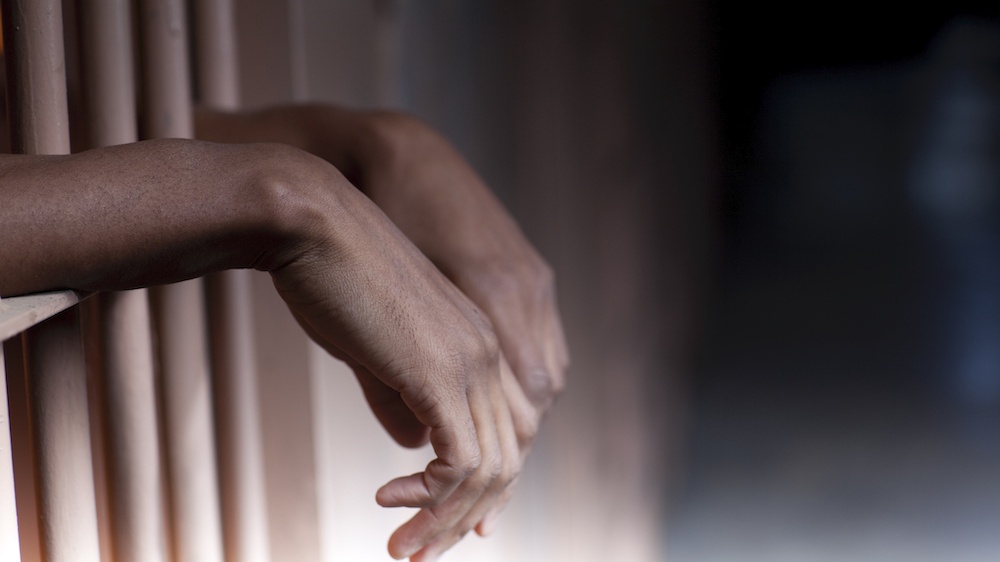If you’re interested in sharing your opinion on any cultural, political or personal topic, create an account here and check out our how-to post to learn more.
Three years after the conclusion of her court case, Annaleise was back in court in July 2016. By most objective measures, she had abided by the terms of her deferred sentence — she had completed her community service, promptly reported to her probation officer each month and maintained a sober, clean lifestyle. She had not, however, been able to afford her court-ordered restitution and cost administration payments for the past two years — which had ballooned to several hundred dollars. A bench warrant was issued for her arrest and she was subsequently incarcerated for failure to pay.
Sadly, this is the reality for too many poor Oklahomans entangled in the state’s criminal legal system — individuals who have "done everything [they were] supposed to do except pay." On any given day, hundreds of people languish in Oklahoma’s jails and prisons due to their inability to pay court fines and fees, in a State where 80% of criminal defendants are considered indigent and eligible for a public defender.
These stories and more are at the heart of a new report by the Lawyers’ Committee for Civil Rights Under Law, "Enforcing Poverty: How Oklahoma’s Reliance on Criminal Justice Fines & Fees Fuels the State’s Incarceration Crisis." The report follows a multi-year investigation into Oklahoma’s use and enforcement of criminal justice fines and fees, and the resulting effect on Oklahoma’s poorest citizens.
As the case of Annaleise shows, court debt is not only a substantial barrier to reentry that hinders a returning citizen’s rehabilitation and reintegration; it is a device that ensures they remain perpetually subject to incarceration.
Following her arrest, Annaleise was jailed at the Oklahoma County Sheriff’s Office for seven days until her arraignment. On the day of her hearing, Annaleise tried her best to explain to the Judge that she simply could not afford to pay. Her only fixed source of income was the $750 a month she received in Supplemental Security Income (SSI) benefits, which often forced her to “pick and choose” what bills to cover — and sometimes left her with as little as $2 to pay towards her legal financial obligations.
She had hoped for leniency. Instead, the Judge revoked her deferred sentence and ordered her to serve 30 days in the county jail, with credit for time served. This scenario was repeated two years later in January 2018, when Annaleise was again arrested and incarcerated for failure to pay, incurring additional fines and costs. “They belittled me … emotionally, physically, mentally … [and I am] still struggling today”, said Annaleise.
Nearly 200 years after debtor’s prisons were outlawed in the United States, and following decades of Supreme Court precedent establishing that individuals cannot be punished solely because they are unable to pay, indigent incarceration, driver’s license suspension and other forms of punishment for inability to pay court fines and fees are present and pervasive in the state of Oklahoma. And they are having devastating consequences.
Courts in Oklahoma regularly and routinely punish people for non-payment of fines, fees and costs without inquiring about their ability to pay. When courts fail to meaningfully consider a person’s ability to pay — including whether they receive public assistance, are eligible for appointment of counsel, are unemployed or have been recently incarcerated — the poorest Oklahomans fall behind on their payments and become trapped in an endless cycle of debt and incarceration, thus exacerbating Oklahoma’s mass incarceration problem.
Further, Oklahoma’s over-reliance on fines and fees as sources of revenue incentivizes courts to ignore existing statutory protections for the most vulnerable, thereby contributing to an intractable system of offender-funded justice and the growth of debtor’s prisons in the State. These enforcement practices disproportionately impact communities of color, low-income households and people with disabilities.
In the end, poverty is criminalized and mass incarceration is expanded. Annaleise, who prior to her 2013 case did not have a criminal record, has spent over 40 days in jail in the past three years for failure to pay. Her case illuminates Oklahoma’s notorious distinction as the incarceration capital of the world, particularly for women.
The problem of court debt is not just a problem for returning citizens like Annaleise — it undermines public trust that the judicial system is fair, equitable and works for everyone, not just the select few. The promise of justice is central to our democracy — where justice is denied, democracy is undone.
____
María De Luna works with the Criminal Justice Project at the Lawyers' Committee for Civil Rights Under Law. Her academic research has focused on the discursive interplay between peace, culture, identity and advocacy. She is the proud daughter of Mexican immigrants and a Chicago native.
